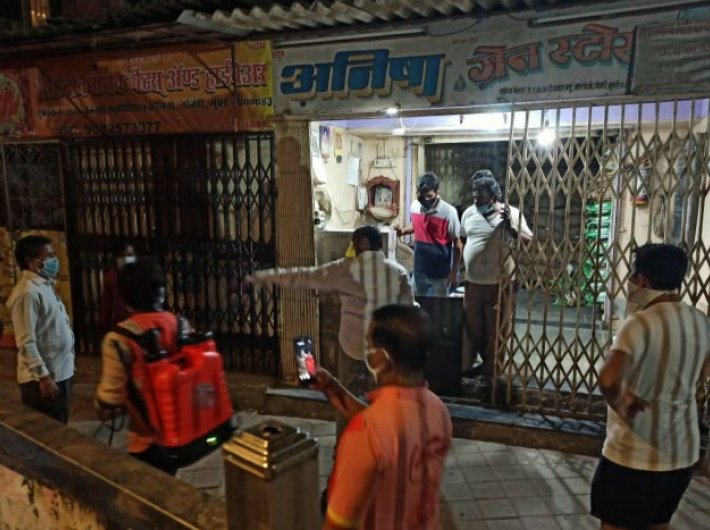It suffers from systemic distrust – and faith in centralized, bureaucratic decision-making
Democracy in India is now taken for a fact, with an unstated assumption that all our institutions are democratic and hence often our successes and more often failures are attributed to ‘democracy’. However, a key frontier where democracy remains a challenge is that of local governments and that too in cities. In times of pandemic, the skin-deep veneer of democracy is also given up in the name of efficiency.
The Disaster Management Framework
Disaster management in India is governed by the National Disaster Management Act, 2005. This Act which enables the constitution of district disaster management authorities is silent on how to apply the same in the case of metropolitan cities and assumes the district level to be a superior level to that of the town/city. Its chairperson is the collector of the district; while the zilla parishad president is a co-chair. Guidelines prepared by the ministry of home affairs (MHA) in 2010 show some awareness of the 74th Constitutional Amendment but yet the city mayors are not envisaged as having a key role in both these key documents. In general, the framework of the Act is based on a centralised ‘command, control’ framework which may be required in emergencies to a certain extent but is not suited for disaster preparedness where local leadership may actually be a key. No wonder then, that often disaster management and preparedness plans stay on paper with few exceptions like Kerala where the plans are owned and backed by local authorities.
Epidemics Act
One of the most interesting facets of governance in the wake of the pandemic is the application of the Epidemics Act rather than the Disaster Management Act. The Epidemics Act is a colonial law promulgated in 1897. It was a response to a massive outbreak of plague and had elicited significant resistance then, including the execution of the Pune city commissioner and some outraged editorials from Bal Gangadhar Tilak. The Act empowers the central and state governments to undertake unusual measures for which existing legislations may not be adequate. By applying this Act in the wake of the pandemic outbreak, the central government thus set a stage for further undermining of local democracy.
On March 14, the government of Maharashtra brought out a notification under this Act by which it empowered the municipal commissioners with widespread powers for measures to curtail the spread of infection. A virtual emergency at the local level was declared, as all meetings of the corporation were abandoned. The standing committee which usually approves the expenditures was kept out of the loop of key decisions pertaining to relief and containment. Further, the overall reliance of the state government and the corporation on mobilising corporate social responsibility (CSR) funds also introduced new dynamics and processes of operation which bypassed the local councilors.
Bypassing elected representatives
Councilors are the foundations of grassroots democracy in urban areas. In large cities like Mumbai, where every councilor represents about 1 to 1.5 lakh population, councilors are also powerful in terms of representation, given that a member of the legislative assembly represents about 5.5 lakh people. However, there are crucial differences in the powers and resources available to the councilor and the MLA. Councilors, thus, rely on developing networks not just within the departments of the corporation but also outside networks and resources, attempting to emerge as single windows to services. The councilors are the most proximate government representative for most urban poor and people in informal settlements who can potentially connect them to basic services, provide resources in crisis times and can advocate for them.
During the pandemic, and by promulgating a particular form of regulations, the councilors were completely bypassed in policy and decision making and in distribution of resources to their constituencies. Their local area development funds were cut by half for Covid relief.
As a result, most councilor actions were limited to sending sanitisation, that is, fogging machines to their constituencies once or twice and distributing AYUSH sanctioned medicines. Many had to rely on their other networks in civil society and corporates to mobilise additional resources, and this depended on their social capital.
Conclusions
Clearly, pandemic governance – in Mumbai especially but also elsewhere – has bypassed democratic processes, elected representatives and given little space to local governance institutions. The reasons for this are not articulated but perhaps are to do with the systemic distrust in local democracy and faith in bureaucratic efficiency and centralised decision-making.
The litmus test for whether this faith in centralised and bureaucracy-led decision making is justified is the nature of response to the policies that have been rolled out. Evidence of the same indicates an almost adversarial relationship between the state and informal settlements in most cases which perhaps could have been avoided, if a due place had been given to democratic processes and the elected representatives at the local level.
Pandemics or disasters cannot be times for suspension of democracy and considering governments as the custodians of pubic health; they are times for the democratic institutions and processes to work at their collective best. Will we create a place for them?
Prof. Bhide is dean of School of Habitat Studies, Tata Institute of Social Studies.
